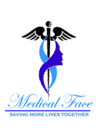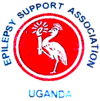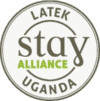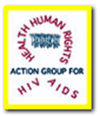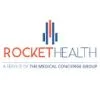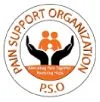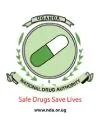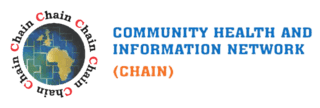

CHAIN is a not-for-profit Civil Society Organization that was established in 1998 in the United Kingdom and 2004 in Uganda. CHAIN promotes the empowerment of people living with and affected by HIV and AIDS, TB, Malaria, and NCDs; Offers capacity building to community-based organizations, supports orphans & vulnerable children and their households, youth, women, most at-risk populations, and other vulnerable people in the community. CHAIN also promotes Patient Safety and Health Literacy.
CHAIN is the secretariat of the Uganda Alliance of Patient Organizations (UAPO), an Alliance that brings together patient organizations from different diseases areas including epilepsy, sickle cell, cancer, diabetes, stroke, pain, mental health, Hepatitis B, HIV. and AIDS among others to promote patient-centered health care in Uganda.
CHAIN International volunteers -Tobias and Lina from Germany at the CHAIN community event.
CHAIN uses a community engagement model to deliver its programs. A model that involves community organizing, activation, and partnership with key stakeholders at the community, national, regional, and international levels. These include among others, patient organizations, policymakers, the Ministry of Health, the Ministry of Education, regulatory and supply chain organizations, and education institutions right from the preschool level to the high school level. CHAIN puts emphasis on empowering children from a young age through the Start Early in Life Initiative (SEILI), based on the fact that young people adapt easily to new knowledge and skills and are good ambassadors for health literacy and patient safety.
It emphasizes patient engagement and empowerment, solidarity and education. Working with community owned resources including VHTs, local leaders and traditional/religious leaders to identify and address community needs; mobilize, sensitize and empower the community on disease prevention, management and utilization of available health services. CHAIN uses media, debates, community outreaches, dialogues, public hearings, sports, music dance and drama to reach out to the unreached and create a common will.
CHAIN’s solutions are curated to support interventions at both the system level (policy and regulatory bodies, supply chain organizations, etc.) and patient, family, and community level interventions.
At the systems level; Promotes patient advocacy and brings about awareness of patient needs and perspectives, through partnership and collaboration with private and public sectors, namely; supply chain organizations, regulators, Ministry of Health, WHO, institutions of learning, research institutions, CSOs, Patient organizations, among others
At the patient and community level; Engages and empowers patients, by providing information and tools that enable them to make informed decisions while navigating the health care delivery system. Facilitates the formation of patient advocacy groups, to raise patient voice at policy level.
Uganda is one of the first countries to have been severely hit by HIV and Aids way back in the mid-1980s. It is also true that it’s the first country in Sub-Saharan Africa that has managed to reverse a generalized HIV epidemic. This has been due to concerted efforts by the government, implementing partners, the private sector, health service providers, civil society organizations, and community-based organizations {CBOs).
In 2018, an estimated 1.4 million people were living with HIV, and an estimated 23,000 Ugandans died of AIDS-related illnesses.
The burden of NCDs is clearly on the increase due to a series of habits and lifestyle factors such as unhealthy diets, harmful use of alcohol, tobacco use, and substance abuse and the increasing physical inactivity that Ugandans find themselves dwelling in. Other factors include age, poor health-seeking behaviour, psycho-social stress and family genetic factors. NCDs are the leading cause of premature deaths {death below 70 years). They contribute about 30% of all the annual hospital-based mortalities {Ministry of Health report 2018).
The key NCD risk factors and diseases according to the 2014 Uganda National NCD Risk Factor Survey Prevalence are as follows:
• 26.8% of Ugandans were engaged in harmful alcohol consumption with about 10% living with alcohol-related disorders. Uganda is ranked 5th globally in Alcohol consumption by volume.
• 10% of Ugandans either smoke or chew tobacco and related substances and the risk is high among teenagers.
• 24.3% of adult Ugandans had raised blood pressure that needed treatment yet 76.1 % of these did not know that they had high blood pressure.
• 1.4% of adult Ugandans were diabetic; the proportion was up to 3% in urban centers.
• 5% of Ugandans were physically inactive.
• 20% of Ugandans were either overweight {14.5%) or obese {4.6%)
• 88% of Ugandans were not consuming adequate amounts of vegetables and fruits despite Uganda being with a wide variety of these.
The situation is made worse by low levels of awareness of the prevention and management of NCDs among the population. II is therefore important to step up interventions to address this problem.
Like elsewhere in the world, low health literacy is a barrier to achieving the quality of life of patients with communicable and noncommunicable diseases in Uganda. Today’s health information on preventive and management of diseases is presented in an abstract form that is hard to understand and indeed many people have difficulty using health information that is routinely available in health facilities, private clinics, media and communities revealed an Issue paper developed by CHAIN in 2014.
Low health literacy has also resulted into patients being diagnosed with chronic conditions in their late stages as well as consumption of substandard and falsified medications, self-medications, poor infant and young child feeding practices, unhealthy diets, and lifestyles, poor health-seeking behaviour, and seeking alternative health care from traditional private practitioners. Owing to the above, low health literacy remains a potential driver for emerging health problems such as non-communicable diseases including hypertension, diabetes, cancers, and other diseases of epidemic proportions including cholera, Ebola, malaria, and Marburg.
There is, therefore, a need to raise the profile of HL in Uganda for improved service delivery and utilization. Health professionals and relevant stakeholders have a responsibility of engaging in building skills of service providers at lower levels and the latter will, in turn, build the skills of patients and members of the community in HL to make informed decisions regarding their health.
According to the Uganda National Household Survey {UNHS) 2016, at least 11 percent of the children under the age of 18 years have lost one or both parents; about half of them are orphaned as a result of AIDS.
Orphan-hood reduces the network of care and protection available to children and is associated with multiple deprivations with farreaching implications for child survival, growth, and development. While most orphaned children continue to live in families – typically with a surviving parent or sibling or members of their extended family – a considerable number, fall through the cracks of regular family support networks. Consequently, a large number of children in Uganda are living outside of protective family care. If not supported, these children are prone to exploitative work and or abuse as means of survival.












